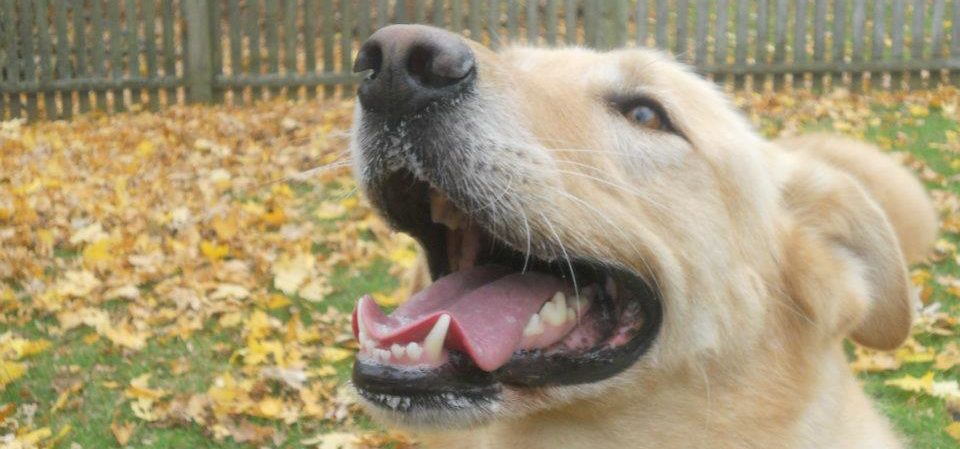Blake was a cat killer. An accidental cat killer, it’s true, but he lost his home because of it.

Blake had been adopted by a loving, nurturing woman, who also fostered cats for a cat rescue. She had neglected to ask whether Blake had a benign attitude toward cats or not. She noticed he was thrilled when he caught a glimpse of a cat or kitten. He would try to chase them or leap toward them, the same way he had always played with other dogs.
Blake’s new owner kept the cats on the second floor of her house and Blake on the ground floor, thinking this would be an ideal solution. It worked for a while for a handful of months, but Blake was always aware that the cats were just out of his reach. He knew they were there since he could hear their meows and smell their enticing feline smells. One day, Blake saw his opportunity. His owner wasn’t quick enough and Blake raced up the stairs intent on finding the cats. Before she could grab him, Blake had found a cat and grabbed it to play and wrestle together. The cat didn’t survive.
I met Blake’s owner in a mall parking lot on a Sunday morning. She was weeping but determined to return him, her granddaughter weeping beside her. Blake stood there, tentatively wagging his tail, knowing something was amiss. After goodbye hugs, he jumped into my car and watched through the windows as we sped away. He whined for a while, then accepted that life was changing for him. He lay in the back seat for a while, head on his paws and sighing. In an hour, halfway to my house, I felt a cold nose nudge the back of my neck and hot breath on my skin. There was Blake, reflected in the rear view mirror, grinning a tentative grin.
Blake had come from a southern state where someone had named him Spade. His new, cat-owning mom had never changed it, perhaps not knowing she could. Before I drove to get him, I asked Cindy, the rescue’s adoption coordinator, “Can I change his name?” “Go for it,” she encouraged me. It seemed to me that he already had enough baggage what with the cat killing and all. He didn’t need to keep that particular name. On the drive home, I tried out names that sounded similar to the one he had. “Jake,” I said to him. He looked back. “Chase,” I tried out. He looked at me politely. “Blake,” I said. His ears pricked up and he gave a small wag. “You got a new name, pup,” I told him. He grinned.
Blake was a smart, happy, curious, one-year old dog. He bounded into my house and was thrilled to meet my two dogs. Very shortly, he was play bowing, leaping and inviting them to wrestle. His past misdeeds and sadness at leaving his home vanished quickly. He looked for things that made him happy – toys, treats, praise, new smells, new experiences – and threw himself into each and every one.
He barked excitedly and often. My dogs didn’t mind that at all. They stood there listening and never ran away hissing. They would smile at him, eyes lighting up at his joy in life. Blake always grinned back. He was also a relentless slipper stealer. When I kicked my slippers off, he would dart in, grab one slipper and race away. In the mornings, I would often have to hunt for slippers I had left in their usual spot overnight. Seldom were they where I had left them.
After a few weeks, a new adopter fell in love with Blake’s picture online. We agreed to meet at a dog park where Blake could run and wrestle with other dogs and she could see him at his happiest. She brought a handsome new collar for Blake and was pretty sure she would take him home that day. I explained that although his paperwork had his old name, he knew his new name, Blake. “I love the name Blake,” she said. Best of all, she told me she was allergic to cats and would never be able to live with one. Blake had landed in the perfect home. “There is someone for every dog,” Cindy told me afterward. She was right.




